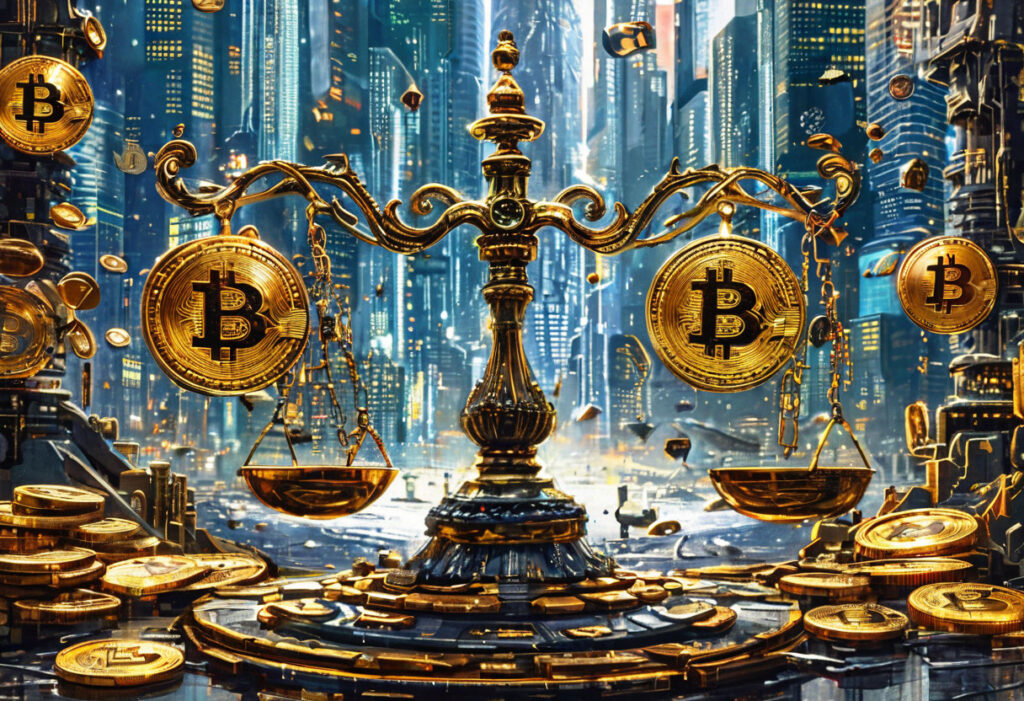The Political Battle Over Crypto Regulation
The recent designation of ‘crypto week’ by US House Republicans to review three pivotal digital asset bills has sparked a significant political debate. These proposals, focusing on payment stablecoins, crypto market structure, and central bank digital currencies (CBDCs), are met with strong opposition from Democratic leaders. They argue the legislation lacks sufficient consumer protections and national security measures, labeling it as ‘dangerous’. This division underscores the complexities of advancing cryptocurrency legislation within the current regulatory framework.
- Analysts note that Democrats, including Maxine Waters and Stephen Lynch, may resist the bills due to potential conflicts of interest, particularly concerning former President Donald Trump’s involvement in crypto activities.
- This scenario highlights the challenges of incorporating digital assets into the financial system without compromising oversight and consumer protection.
Comparative Views on Crypto Regulation
Republicans and Democrats exhibit distinct priorities. The former advocates for innovation and regulatory clarity to foster the crypto sector’s growth, while the latter emphasizes consumer protection and national security. This dichotomy reflects the broader national conversation on the role of digital assets in the economy.
- The outcome of ‘crypto week’ could have profound implications for the US digital asset market.
- Current legislative decisions may set the precedent for how cryptocurrencies integrate into the financial ecosystem.
The Controversy Surrounding the GENIUS Bill
At the core of US crypto regulation debates is the GENIUS stablecoin bill. Critics raise concerns about its implications for the future of digital currency.
- Congresswoman Marjorie Taylor Greene cautions that the bill might pave the way for CBDCs, sparking fears of government overreach and a move towards a cashless society.
- Recent amendments imposing stricter financial oversight have fueled debates on surveillance and control.
- Dr. Michael Egorov, among other experts, warns of the risks associated with seizing stablecoin reserves, highlighting the delicate balance between innovation and regulation.
Public Opinion on CBDCs and Cryptocurrency
Opinions among the US public on CBDCs and cryptocurrency are deeply divided. This section explores these perspectives and their potential impact on the future of digital currency.
- Surveys indicate a significant portion of Americans are either opposed to or undecided about CBDCs, reflecting uncertainty about their advantages and risks.
- Many in the crypto community view CBDCs as antithetical to the principles of decentralization and financial autonomy.
Legislative Timeline
Republican leaders are pushing to pass all three bills before Congress’s August recess. The House Committee on Rules is expected to review the cryptocurrency legislation soon, with keen interest from industry stakeholders.
US Lawmakers Criticize Cryptocurrencies, Advocate for CBDCs
During a recent press conference, Democratic lawmakers, notably Representative Stephen Lynch, strongly criticized cryptocurrencies, labeling them as fraudulent with no legitimate use. Lynch pointed to their role in enabling illegal activities, including ransomware attacks. The lawmakers are advocating for a central bank digital currency (CBDC) as a safer, regulated alternative.
Opposition to Government-Controlled Digital Dollars
Representative Maxine Waters has proposed the CBDC Anti-Surveillance State Act, designed to block the creation of a government-controlled digital dollar. Waters and her allies contend that such a move, alongside the GENIUS stablecoin bill, could jeopardize national security. Opinions on CBDCs remain polarized, with some viewing them as essential for modern finance and others as a potential threat.
Global CBDC Developments
While the US debates its approach, other nations are advancing their digital currency projects. The Reserve Bank of India is broadening trials for its digital rupee, and Australia’s central bank is exploring the feasibility of a digital currency.
The Path Forward for Digital Assets
The discourse on tokenization and cryptocurrency regulation is evolving. With regulators showing cautious optimism and the industry providing strong support, tokenized securities are on the brink of substantial expansion.

